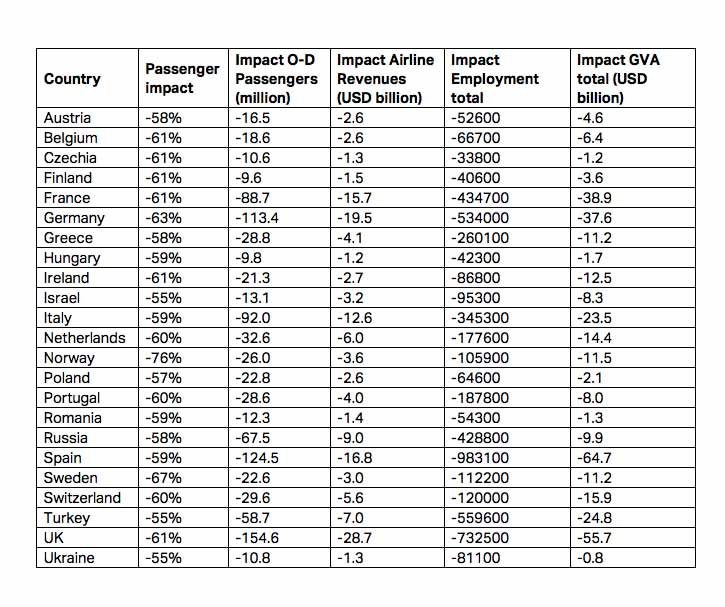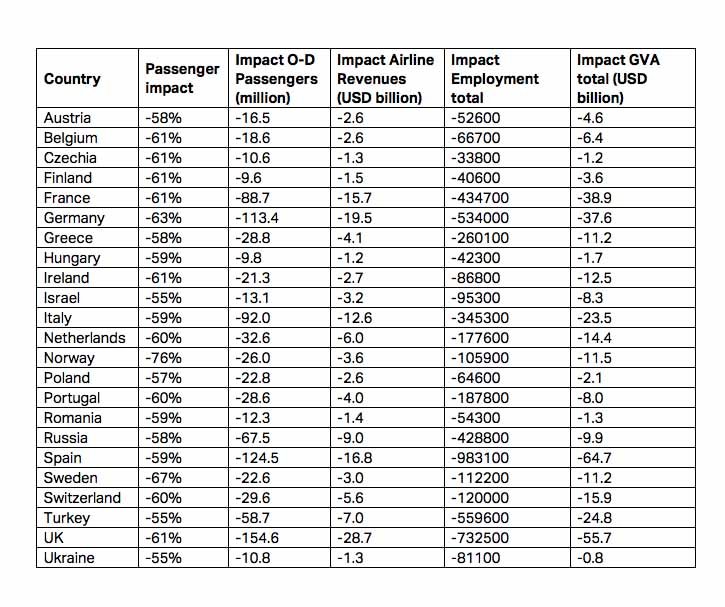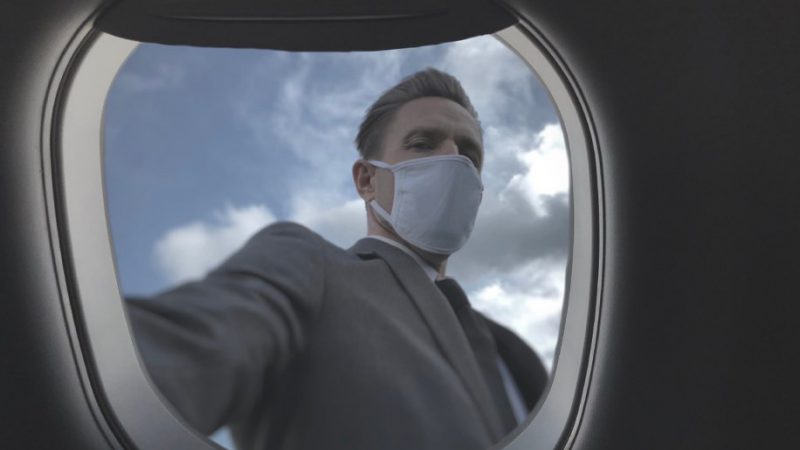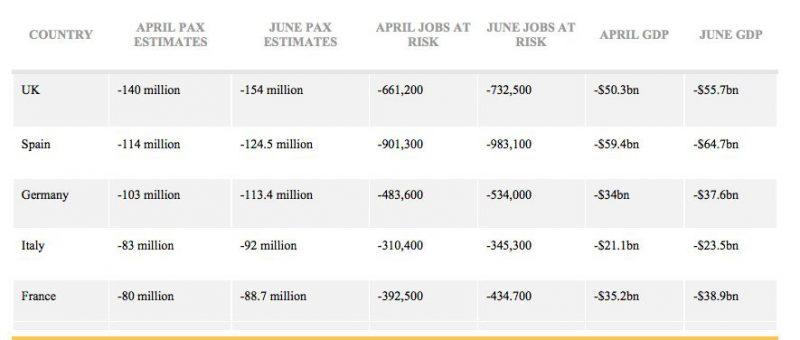Airline Restarts: IATA Urges Coordination and Careful Regulation
Autumn airline bookings down 82 percent as demand continues to decline and virus resurges
June 21, 2020

The International Air Transport Association (IATA) is showing new research detailing the impacts of COVID-19 on the European aviation industry and the economies affected by the shutdown of air traffic – how those factors have worsened, not abated, over recent weeks.
IATA predicts airlines in Europe will lose $21.5 billion in 2020, with passenger demand declining by more than half and quashing some 6-7 million jobs supported by aviation in Europe alone. The council emphasizes that an accelerated recovery of air transport in Europe is vital if the worst of these impacts is to be avoided. It recommends government action in two priority areas:
* A coordinated restart of air travel, with the opening up borders (including elimination of quarantine) and operating rules based on the health guidance set down by the International Civil Aviation Organization (ICAO) and at European level by the European Aviation Safety Agency (EASA) and the European Centre for Disease Control (ECDC). It is essential that governments coordinate to restart air connectivity consistently and in line with international best practice. The guidance set out by ICAO is broadly consistent with measures recommended by EASA/ECDC and strikes the right balance between safeguarding public health while permitting viable air services. The measures, including more thorough and frequent cleaning, and the wearing of face masks, further reduce the already low risk of transmission on board. Other measures, such as airport screening where appropriate, discouraging symptomatic passengers from travelling, and safe destination protocols, can also reduce the role of aviation as a potential source of international re-infection, and render quarantine unnecessary.
“Quarantine measures are a huge impediment to a recovery in air traffic. Our latest passenger survey shows that 78% of people in France, 76% in Germany and 83% in the UK will not travel if a quarantine is in place. Therefore, governments looking to reopen their economies need an alternative, risk-based solution. The answer is a strategy that combines coordinated, internationally-consistent health measures for air travel with effective national plans for managing COVID-19,” said Schvartzman.
* Continued financial and regulatory support, an extension of the waiver to the 80-20 slot rule, and relief from taxes and charges. Financial aid has been in the form of loans, which are adding to the debt burden for airlines and which will hinder their ability to invest in new services, cleaner aircraft, and expanded employment going forward.
“Europe’s economies have been brought to their knees by COVID-19, and the aviation industry has been especially hard-hit. Recent optimism over the opening of the Schengen (26 European countries and world’s largest visa-free zone) borders should white wash the seriousness of the situation. For our future prosperity it is imperative that the industry recovers as soon as possible,” said Rafael Schvartzman, IATA’s Regional Vice President for Europe.
Marking similar concern, the World Health Organization warned of a “new and dangerous” phase of the virus erupting globally. More than 150,000 new cases of the disease were reported on Thursday: the highest single daily total so far. Most were in the Americas, though “large numbers” came from South Asia and the Middle East.
“The world is in a new and dangerous phase. Many people are understandably fed up with being at home.
Countries are understandably eager to open up their societies and economies”, WHO chief Tedros Adhanom Ghebreyesus told journalists in a press conference in New York. Tedros repeated his call for countries and people to remain vigilant against the disease, and to continue efforts focused on containing the disease, including though testing and contact tracing.
The latest assessment from IATA Economics shows that the outlook at national level has worsened for major aviation markets in Europe since April:






